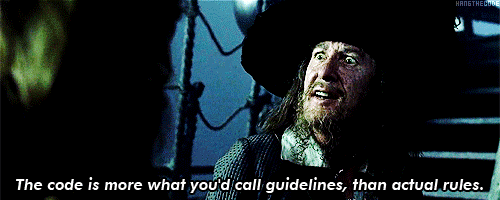What’s The Story, Muthur?
To the point, tabletop gaming
Popular Posts
6 Games that nail What Rules-Lite TTRPGs Should Be
A good rules-lite system doesn’t overwhelm you with procedures and crunch for every situation. Instead, the key procedures are covered and it gives you a clear, concise core mechanic. Then it trusts you to apply it flexibly.
By JimmiWazEre
Opinionated Tabletop Gaming Chap
TL;DR - Rules-lite isn’t the same as rules-incomplete or rules-inconsistent. Don't conflate them.
This post contains affiliate links.
Introduction
I want more people to play Rules-Lite games, but this crusade of mine is hindered by a misconception of what a rules-lite game actually is.
A lot of people hear "rules-lite" and think "lazy" or "half-finished." But that’s missing the point entirely. A great rules-lite RPG isn’t undercooked, it’s efficient, elegant, and focused. Let’s unpack what makes a minimalist system actually good, and why "less" doesn’t mean "worse."
What Is Rules-Lite
A good rules-lite system doesn’t overwhelm you with procedures and crunch for every situation. Instead, the key procedures are covered and it gives you a clear, concise core mechanic. Then it trusts you to apply it flexibly.
It’s just like that old saying:
Give a GM a fish, and they can run a session. Teach a GM to fish, and they can run a campaign.
Or something like that. I don’t know, it's close enough.
What isn’t Rules-Lite?
Let’s be crystal clear, rules-lite is very different from rules that are simply incomplete or inconsistent.
Inconsistent rules happen when a mechanic is explained more than once but the explanations don’t match. This usually signals a rushed edit. One version may or may not have replaced the other, but both made it to print. That’s not planned ambiguity, rather it comes over as just poor proofreading.
Designers: please, if someone flags this, don't try to convince us that you’re providing options. No one's falling for it, just own it and issue a FAQ or errata.
Incomplete rules are when a mechanic is introduced but not fully defined. For example, a game might explain how to hit an enemy in great detail… but never actually explain how damage works. You can’t convince me that this is minimalist design, it's just frustratingly half baked rules - because now we know that there is a specific way that this should be done, but we’ve no idea what it is.
RAI Matters
It all comes down to understanding the Rules as Intended (RAI). If the designer has said enough to give the GM an understanding of the game’s core rules language, then the GM should be confident that they can make a ruling that falls in line with RAI. If not, flesh it out some more.
Gameplay examples are great for this, as are developer commentaries in the sidebar. Designers take note!
Experience matters
I'm a big fan of the rules-lite philosophy, but if you've never run a TTRPG before, there is a danger that you might not have developed that muscle yet which allows you to make rulings up on the spot that feel consistent with the game system. Just bear that in mind before you pick your first game.
That’s not to say that a rules'-lite game shouldn’t be your first, but rather that I just want to make sure that your expectations are managed. It may start difficult, but it will get easier as you go on.
Recommendations
If you’re interested in picking up a good rules-lite game, then I’ve got a short curated list for you of some of my personal favourites. Full disclosure though my dudes, some of these are affiliate links, and if you chose to pick one up using the links provided, then I’ll get a small kickback at no extra cost to you.
Mausritter
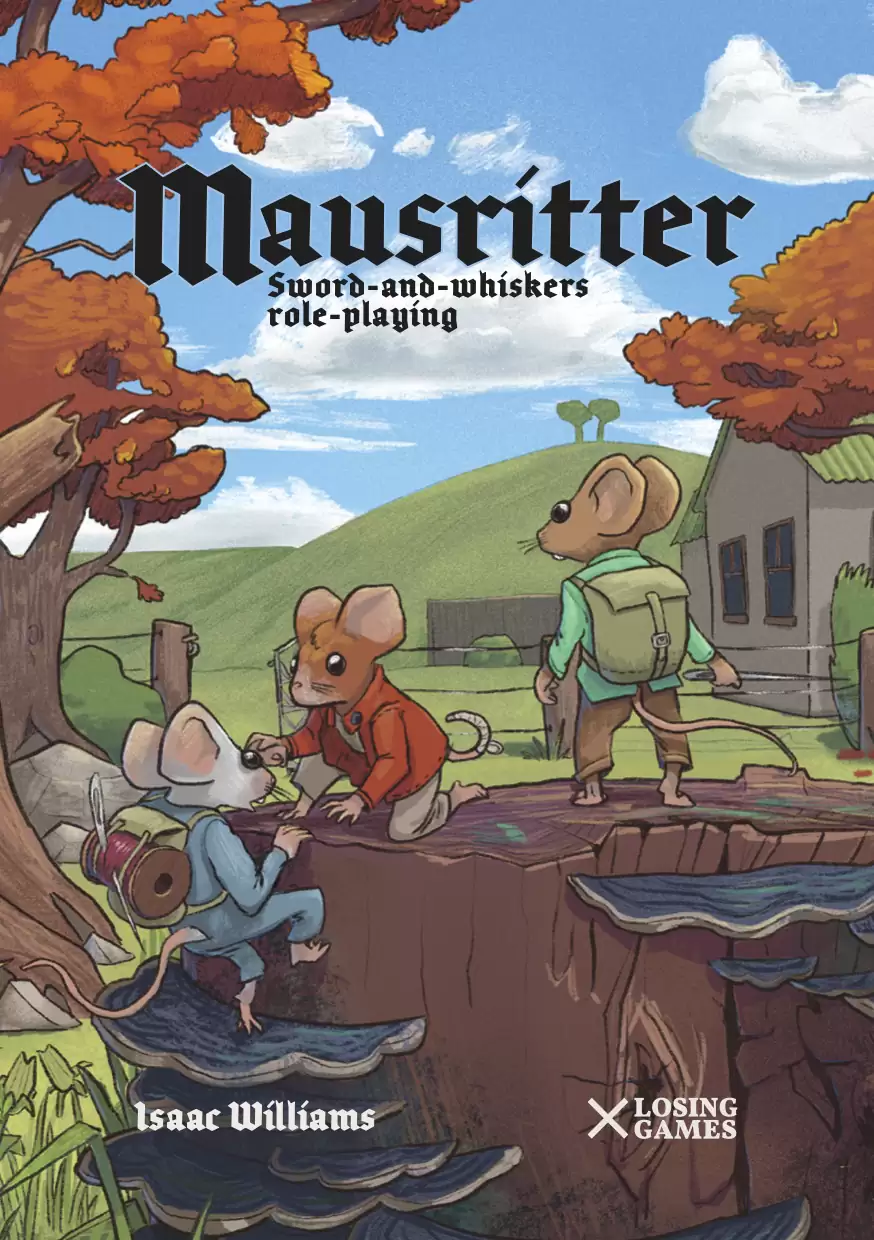
Mausritter is a charming, rules-lite fantasy RPG where players take on the roles of brave little mice in a big, dangerous world. Built on Into The Odd, an OSR style framework, it uses simple d20 roll under mechanics and item slots for inventory, making it quick to learn and run. Its elegance lies in its ability to deliver rich, old-school adventure vibes with modern usability and 1990’s Disney cartoon flair.
I played in a duette game of this with my wife at the kitchen table, and she really enjoyed the vibes. With tweaks to the lethality I can see this being really popular with young families too.
Index Card RPG
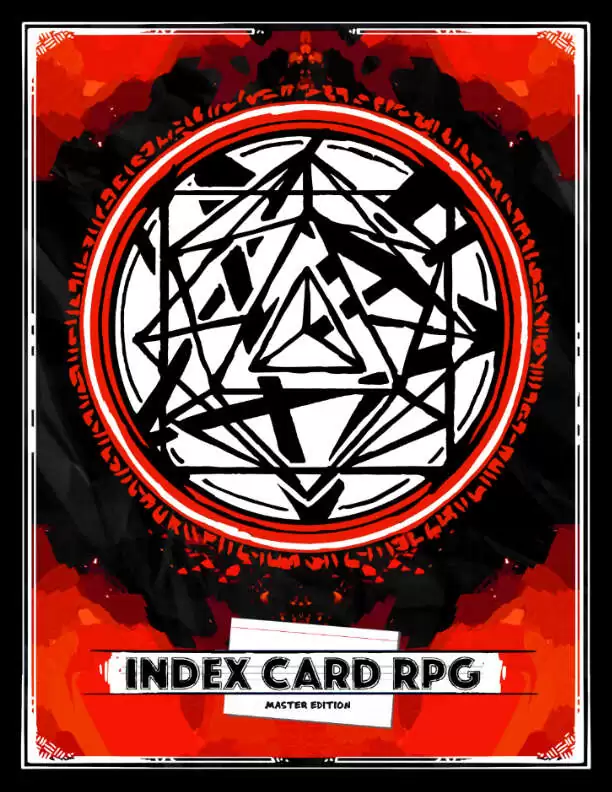
ICRPG strips tabletop roleplaying down to its essentials with fast, flexible rules that encourage creative problem-solving and dynamic pacing. Everything runs off a single target number per room or scene, making it intuitive and highly adaptable. Its modular design and DIY ethos make it perfect for GMs who like hacking and building custom worlds on the fly.
EZD6
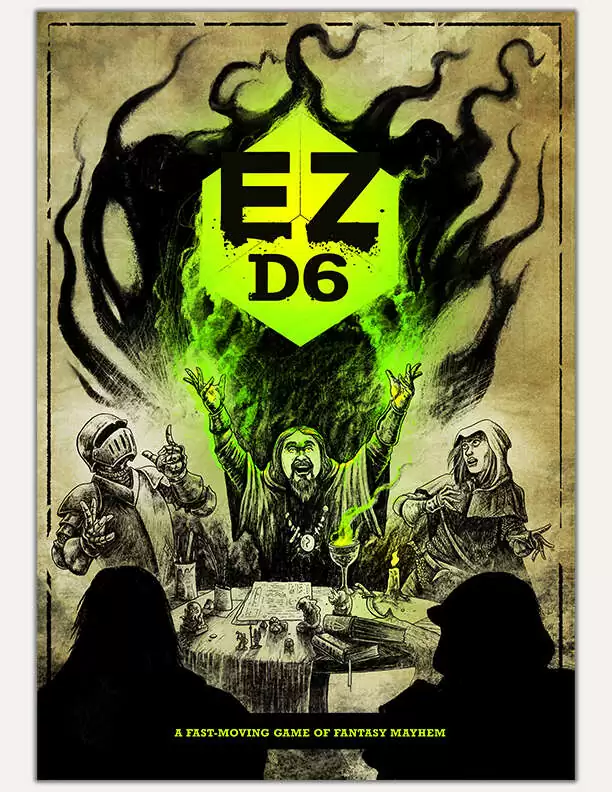
Created by DM Scotty, EZD6 lives up to its name with a system that’s incredibly easy to pick up and play. Most rolls come down to a single d6 against a target number, streamlining gameplay while leaving plenty of room for dramatic moments. It’s especially good for narrative-driven groups who don’t wanted to be limited by predefined abilities on their character sheets, and instead want to freedom to narrate their abilities as they see fit.
One of my players who’d never GM’d before in her life ran a couple of us through a homebrew adventure using this system and it was an absolute blast.
Pirate Borg
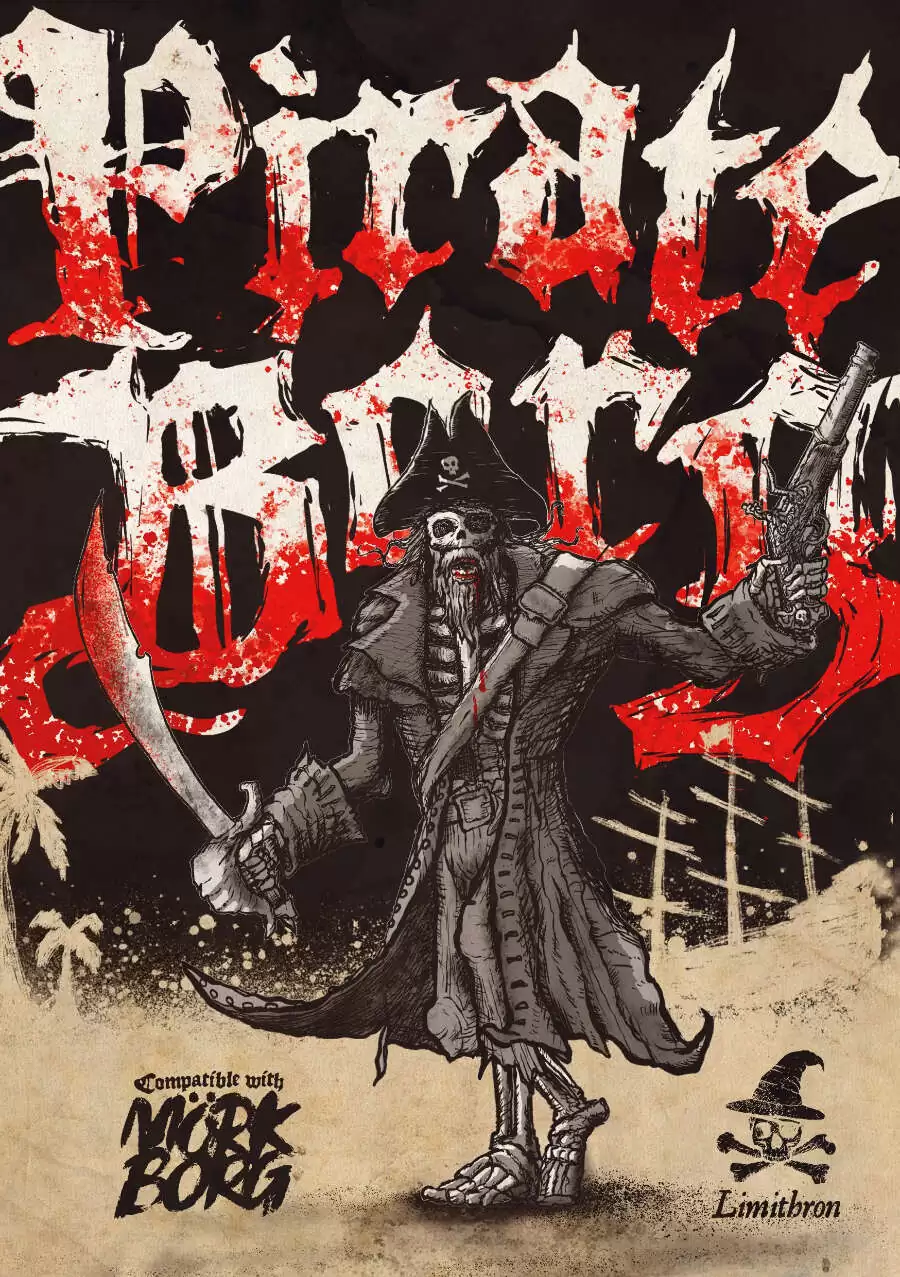
Pirate Borg is a brutal, rules-lite game of swashbuckling horror on the high seas. Inspired by Mörk Borg, it mixes fast, deadly mechanics with punk rock layout and evocative setting material. It’s ideal for players who like their pirate adventures with a side of doom, decay, and dark magic, and who don’t mind their characters dying spectacularly.
The squint-and-it’s-historical side of this game has literally made me buy pirate history books and start listening to pirate podcasts. I love all that stuff now, and it takes me back to my childhood - playing Secret of Monkey Island on my big brother’s Amiga. Good times.
GOZR
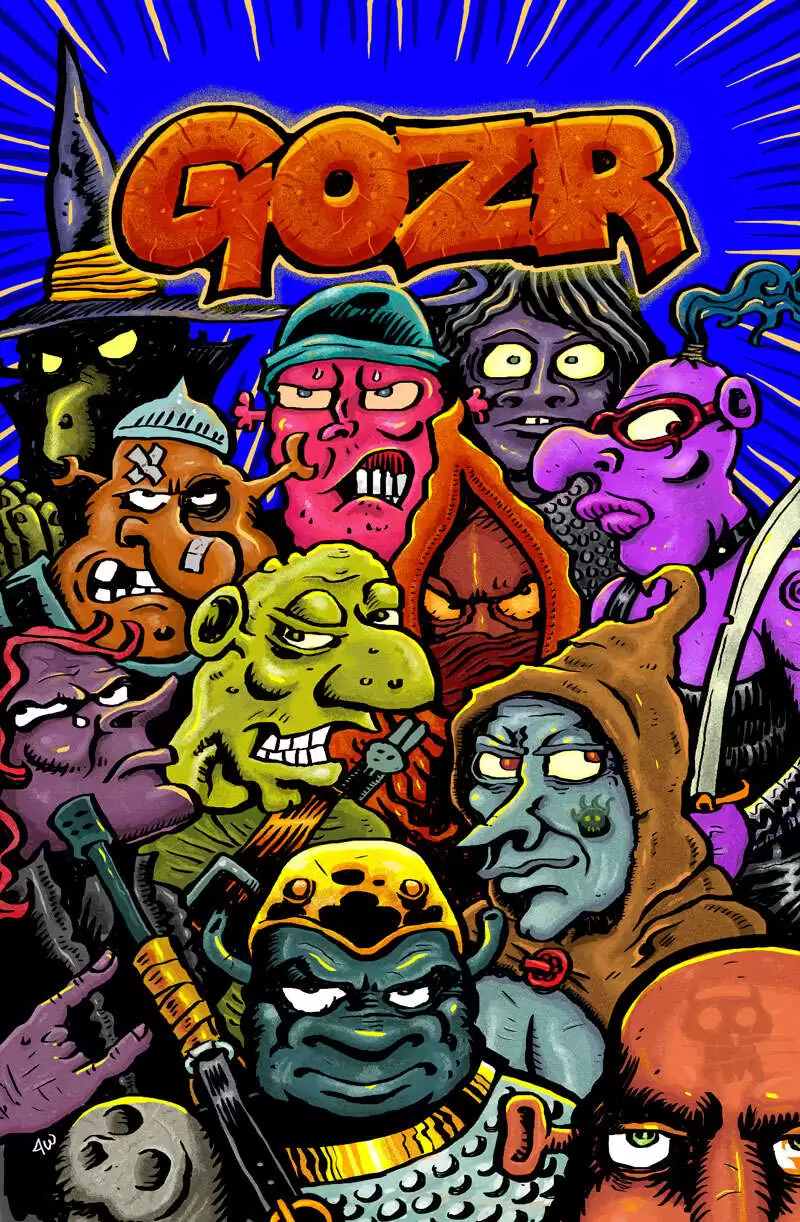
GOZR is a wild, gonzo sci-fantasy RPG that feels like it escaped from the back of an '80s metal album cover. It runs on a straightforward d20 roll-over system and embraces weirdness at every turn, from its mutant characters to its DIY zine-style aesthetic. It's brilliant for groups who want something fresh, funky, and full of chaotic creativity without a ton of prep.
I also wrote an opinion piece for this game a few months ago which included a free system cheat sheet that I’d worked on with the help of the games designer to get players started sooner. Can’t recommend it enough!
Spellz!
Indie developer, Jake Holmes recently reached out to me on Bluesky with an interesting little one page rules-lite game he was working on called SPELLZ! The game is still in it’s beta testing phase and he’s taking feedback on it it, but for the price of totally free, and for the sake of reading less than a single page - it’s definitely worth a look in if you want to see just how lite the rules can go!
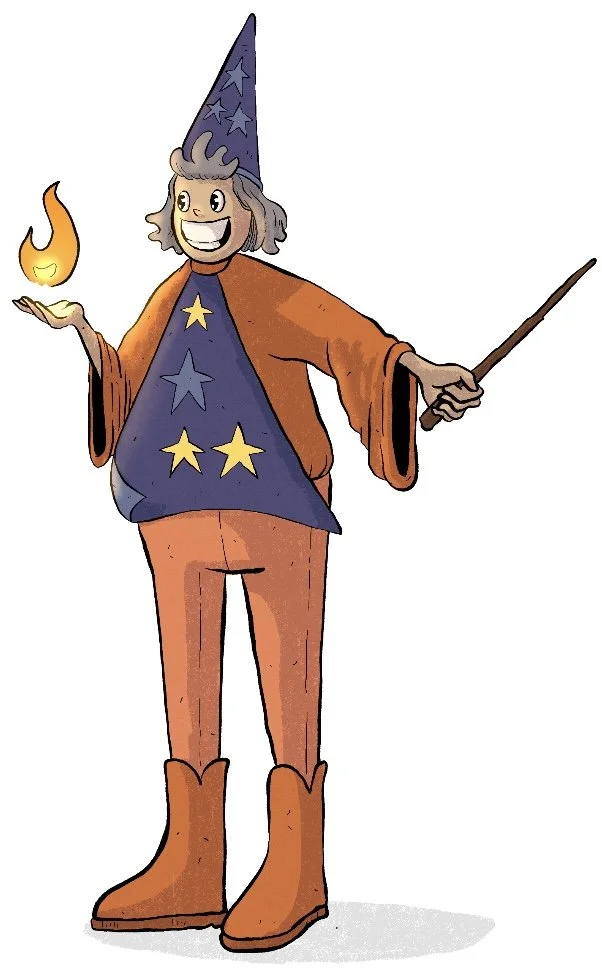
It’s a fast TTRPG where magic is improvised in real time using letter tiles. Players draw tiles and try to form words on the fly — the word they create becomes the spell, and its effect is narrated accordingly. Stronger or stranger words often have bigger effects, and failed spell attempts can backfire spectacularly, with the GM repurposing your discarded letters.
I’ve not played it, but I have given feedback on the rules which was promptly actioned. It looks quick, and perfect for creative groups who enjoy thinking on their feet, might even be a way to introduce TTRPGs to your mum, dad, and nan who’s idea of a tabletop game otherwise begins with crosswords and ends with Scrabble!
Heya, just a thought, if you want me to take a look at your game and feature it on the site, like SPELLZ! Then drop me a message, lets have a chat!
Conclusion
The key message here is that if you've been frustrated by rules-incomplete or rules-inconsistent in the past, please don't be put off a rules-lite system because you're assuming it's the same thing. It ain't. If you get overwhelmed by books the size of a university textbook and you want to start small, rules-lite could be for you.
And so endeth the sermon.
Hey, thanks for reading - you’re good people. If you’ve enjoyed this, it’d be great if you could share it on your socials - it really helps me out and costs you nothing! If you’re super into it and want to make sure you catch more of my content, subscribe to my free monthly Mailer of Many Things newsletter!
This post contains affiliate links.







